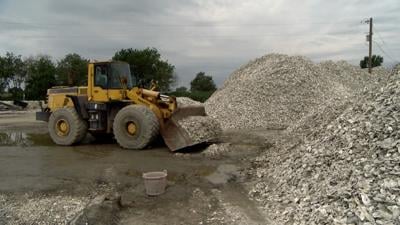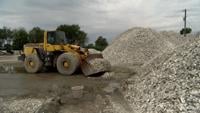TODDVILLE, MD - Millions of oyster shells are being transported on a boat for a large-scale restoration project aimed at revitalizing the native oyster population in the public fishery in the Chesapeake Bay.
Mountains of oyster shells are currently piled high at the old Meredith and Meredith Seafood building in Toddville. These shells, donated by Pacific Seafood, have been shipped from Washington state to Maryland. According to organizers, Pacific Seafood had an ample supply of shells to share.
“We have an abundant supply of oyster shell. We recycle our oyster shell, but Ben mentioned they are challenged with having enough oyster shell in their estuary,” said Jenn Allison, plant manager at Pacific Seafood.
Ben Krewson, manager at Madison Bay Seafood, emphasized the dire need for shells in the Chesapeake Bay. “The Chesapeake Bay is starving for shells. I think it's 60 or 70 percent of the oysters harvested from the Chesapeake that don't make their way back to the Bay. They end up going to places like Louisiana, Texas, and Mississippi. The shells don’t come back,” Krewson explained.
On the day of the operation, millions of dried shells were loaded onto a conveyor belt, placed on a boat, and sorted into piles. From there, the shells will be planted in Fishing Bay and throughout the Chesapeake Bay to help restore the oyster population and improve water quality.
Nick Hargrove, owner of Wittman Wharf Seafood and a collaborator in the project, highlighted the significance of the initiative for the local community. “There are so many families up and down the Eastern Shore that rely on oysters for their income. These are people in my community, my friends, my family. Ensuring they have something to work on for years to come is vital,” Hargrove said.
Miranda Ries, director of regulatory affairs at Pacific Seafood, echoed the sentiment, explaining the ecological benefits of the shells. “The shells provide a surface for oysters to grow. You'll get these little tiny oysters that will naturally reproduce in the environment, and they’re just looking for a host. Oyster shells are their preferred substrate, acting like a dinner plate for them to attach to,” Ries noted.
Madison Bay Seafood estimates that sorting and planting these piles of shells will take about ten days. They also revealed they have a contract with Pacific Seafood to supply more shells if a million more are needed.


